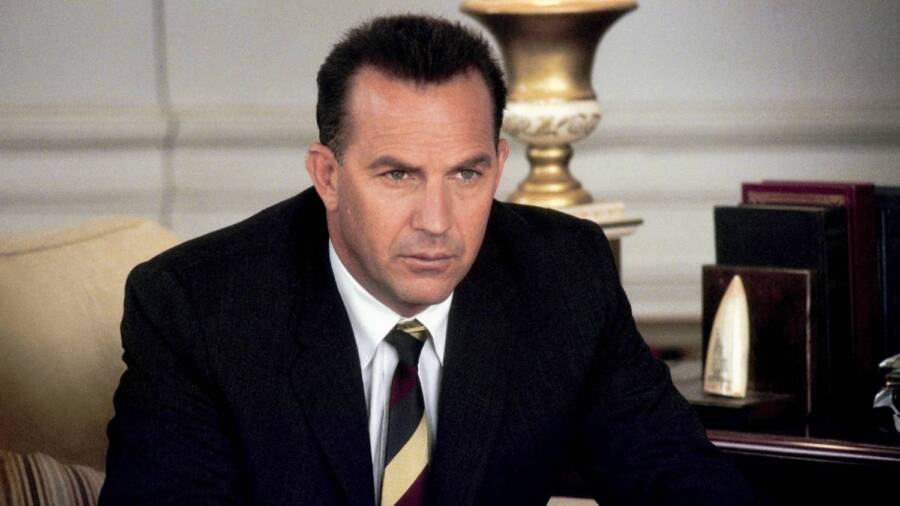The Cuban Missile Crisis In Thirteen Days
Screenwriter David Self based Thirteen Days on the transcripts from meetings regarding the Cuban Missile Crisis, which were then transcribed and published by Ernest May of Harvard, and Philip Zelikow of the University of Virginia.
The stand-off between the U.S.S.R. and the United States was the closest our planet ever came to “mutually assured destruction,” according to The Guardian.
“We were eyeball to eyeball,” said defense secretary Robert McNamara at the time, “and the other fellow just blinked.”
When Thirteen Days was released, critics lauded it for its enthralling tension and engaging dialogue. But how faithful to the facts was the movie, really?
According to The Los Angeles Times, Richard Reeves, the renowned biographer of John F. Kennedy, had nothing but praise for the drama. He claimed that “compared with most of the junk being made these days, Thirteen Days is practically Thucydides.”

Beacon PicturesCritics have argued that the character of White House assistant Kenneth P. O’Donnell was far less involved during the Cuban Missile Crisis than the movie conveys.
Of course, the compliment was only part of an article titled “Call ‘Days’ What You Will, But It’s Not Quite History,” in which he chronicled the film’s numerous inaccuracies. While the movie was certainly based on real tapes, the dialogue itself was dramatized.
This is, after all, a movie based on a true story and not a documentary. Nonetheless, Reeves fairly pointed out where and how egregiously the filmmakers deviated from history.
“Neither U.N. Ambassador Adlai Stevenson nor Air Force Chief of Staff Curtis LeMay, the bad guy in the movie, were members of Ex-Comm.” Ex-comm was an ad hoc executive committee of the National Security Council set up by the White House.
Reeves also claimed that the filmmakers accurately regurgitated Robert Kennedy’s hyperbolic fear-mongering in regard to the true danger of Soviet missiles.
The movie did, however, elevate the character of Kenneth O’Donnell. Historians were befuddled as to why this figure, a backroom fixer, was depicted as a major player and decision-maker in the film.
“It’s like making Rosencrantz or Guildenstern the lead in Hamlet,” one expert confusingly joked.
Director Roger Donaldson ultimately confessed that he took great creative liberties with the character. This was especially the case in scenes where O’Donnell gives inspiring speeches to pilots preparing to survey Cuba.
While he firmly defends elevating O’Donnell’s status — claiming he did, in fact, play a much larger role than the public is aware of — he denies that the man’s family had any influence on the script.
“Kenny’s son is a friend of our producer Armyan Bernstein, but he only got involved in Beacon long after work on the film had begun and he did not call the shots,” said Donaldson. “The film is accurate to the spirit as well as to the letter of what went on.”
Harvard professor of international affairs, Graham Ellison, however, strongly disagreed.
“There’s no evidence that O’Donnell played any such role,” he said. “This is an invention, encouraged a little by O’Donnell’s recollections. Many people remember about historical events that they played a bigger role than they did.”
But Ellison had some concessions. “I give the film high marks in other areas, particularly in its depiction of the difficulty of the task faced by the president.”
Indeed, concessions and critiques are the names of the game when it comes to movies based on true stories. Not all these movies were accurate, but they were an intriguing glimpse into the past.
After this look at how well 11 movies based on true stories depicted reality, take a look at 44 of the best historical movies. Then, learn about six tragic movies that were even more horrifying in real life.





